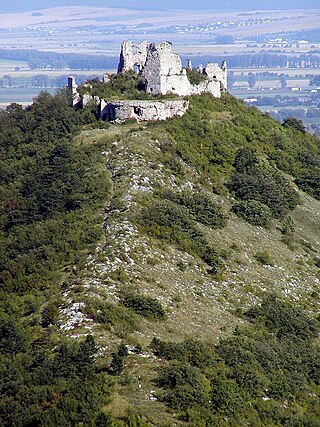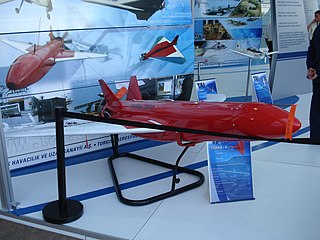Bajwa is a Jat surname and tribe name commonly found among the Sikhs, Hindus and Muslims of the Punjab region in India and Pakistan.

Ardino is a town in southern Bulgaria, in the Rhodope Mountains. It is located in Kardzhali Province and it is also close to Smolyan.

Sohawa is an administrative sub-division (Tehsil) of the Jhelum District, situated in the Punjab province of Pakistan, located in the northwestern part of the district. One sign of Sohawa is the toll plaza by the name of 'Tarakki' on the Grand Trunk Road. The main bazaar of Sohawa attracts people from nearby villages.
Sidhu is a Punjabi Jat clan found in Punjab.
Kharal is a Punjabi tribe predominantly found in the Sandal Bar region of Punjab, Pakistan, with significant numbers also present in Mandi Bahauddin, Pind Dadan Khan, Muzaffargarh, and further south to Sindh.
Buzdar is a clan of Baloch tribe of Rind, living in Balochistan, Sindh and Punjab provinces of Pakistan. They mostly live in mountainous areas of Koh Suleiman.The 2nd largest tribe of baloch estimated population is about 300000 people. Sardar Usman Buzdar is current Tumandar of Buzdar tribe.
The Minhas is a Rajput clan. They are found in Punjab, Himachal Pradesh and Jammu and Kashmir. These are spread in most of the part of Gagwan and Jhatgali of district Ramban. It is found in Hindu, Muslim and Sikh communities.
Jat Sikh are an ethnoreligious group and a subgroup of the Jat people and the Sikh religious group from the Indian subcontinent. They are one of the dominant communities in the Punjab, owing to their large land holdings.

Turňa nad Bodvou is a village and municipality in Košice-okolie District in the Kosice Region of eastern Slovakia.
Sipra is a Jat clan in the Punjab region of Pakistan.
Khaglan Wala (ڪھگلانواله) is a village and union council of Isakhel Tehsil of Mianwali District in the Punjab province of Pakistan. It is part of Isa Khel Tehsil and is located at 32°37'60N 71°16'0E. Located on the northern bank of Kurram River, it is one of the villages situated on the western borders of Punjab province adjacent to KPK province. Its population is about 3000 people. This is comparatively a developed village. Basic facilities like electricity, telephone, metalled road, internet, schools, water supply system and sewerage system are provided to the inhabitants of this village. It is also a well-planned village situated on a 40 feet wide metalled road. A 30' wide main street runs east to west through the village, equally dividing the entire village into two parts. Three other streets run north to south crossing the main street at 90°. There are four mosques i.e Grand Mosque, Masjid Naurang Khel, Masjid Khizar Khel in Mohalla Khizar Khel and Masjid Abadi Tajpora in this settlement. The scene of river Kurram alongside bela jungle provides beautiful look to this historical village. Khaglanwala is hub of different routes coming from various villages situated on other side of the River Kurram, to reach Isa Khel city.

The Khugyani, Khogyani or Khogiani tribe is one of the Karlāṇī tribes of the Pashtun people. The tribe originated in the Khogyani district in Nangarhar province of Afghanistan. The Khogyani District is in eastern Nangarhar province of Afghanistan, near the city of Jalalabad and the Kōh-i-Safēd.
Turna or Turňa may refer to:
Bagrianwala is a historic village of Sahi [Jutt] clan of punjab which are well known because of their bravery. Bagrianwala is a town and union council of Gujrat District, in the Punjab province of Pakistan. Chaudhary Muhammad Ashraf Sahi s/o Chaudhary Rehmat Khan Sahi is the only person in the history of Tehsil Kharian who won unopposed (بلامقابلہ) election and elected as Nazim of UC Bagrianwala. It has a High School Named Govt. Higher Secondary School Bagrianwala. Bagrianwala is part of Kharian Tehsil and is located at 32°33'0N 73°52'0E with an altitude of 217 metres.
Hans is an eponymous Punjabi Arora clan of Khatri community found in India. It originates from the Sanskrit hams, meaning swan or goose. It is also a Jat clan. The name can also be found amongst the Bhangi (Chuhra) and Balmiki (Mirasi) castes.
Buttar Kalan is a village in the Moga district of East Punjab (India), located on the Moga-Barnala highway. Khurd and Kalan are Persian words meaning "small" and "big" respectively. When two villages have the same name, they are differentiated by adding "Khurd" or "Kalan" to their names.
Turna is a village in the Mengen District, Bolu Province, Turkey. Its population is 73 (2021).

TAI Turna is a turboprop-powered radio-controlled target drone introduced in 2001. Designed, developed and built by Turkish Aerospace Industries (TAI) and powered by an engine manufactured by Tusaş Engine Industries (TEI), the unmanned aerial vehicle (UAV) is in use by the Turkish Armed Forces in target tracking and gunnery firing exercises.
The Lali, sometimes written as Lalee, are a Jat clan, found mainly in the Chiniot district of Punjab, Pakistan.
Folk practices prevalent in Punjab incorporate local mysticism and refers to the beliefs and practices strictly indigenous to the Punjabi people, of the Punjab region including ancestral worship, veneration of saints, and local festivals. There are many shrines in Punjab which represent the folk religion of the Punjab region which is a discourse between different organised religions. These shrines represent inter-communal dialogue and a distinct form of cultural practice of saint veneration.




